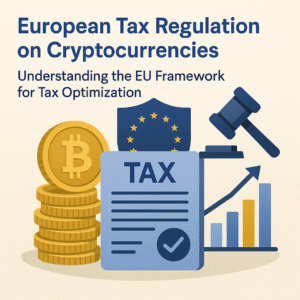QPay: Complete Analysis, Functioning, and Investment Outlook
Introduction & SEO Hook
QPay is an innovative cryptocurrency specialized in secure and instant digital payments. This in-depth analysis will help you understand QPay’s price trends, its technical functioning, how to buy and store this token, and its long-term prospects. Whether you are a beginner or experienced investor, this guide provides all the keys to monitor and act wisely on QPay.Key takeaways
- Significant short-term volatility due to market size and liquidity.
- Key influencing factors: merchant adoption, regulation of digital payments.
- Growth potential linked to integration into international payment systems. Distinct positioning compared to general-purpose cryptos thanks to its focus on payments.
Presentation of QPay
QPay is a native token designed to facilitate fast, secure, and low-cost digital transactions. Classified as a utility cryptocurrency, QPay aims to optimize online and physical payments through a decentralized and accessible solution. The main goal of the QPay project is to simplify and secure payments in an increasingly digital world, offering a competitive alternative to traditional solutions such as credit cards or centralized banking systems. In a context where demand for instant and affordable transactions is booming, QPay positions itself as a solution tailored to individuals, merchants, and financial institutions. Its ecosystem enables payments without intermediaries, reducing fees while guaranteeing transparency and transaction security. To buy QPay, it is recommended to use reputable exchange platforms listing this token, ensuring compatibility with your digital wallet. Invest in QPay now via our recommended partner [affiliate link to purchase platform].How Does QPay Work?
QPay operates on a dedicated blockchain optimized for payments, combining speed and low transaction costs. Its technical architecture relies on a hybrid consensus mechanism ensuring both security and scalability. Technology used:- Blockchain type / consensus: QPay uses a Proof-of-Stake (PoS) mechanism combined with fast validation algorithms, reducing energy consumption and improving transaction speed.
- EVM compatibility: The QPay blockchain is not EVM compatible but integrates a proprietary virtual machine tailored for payment-specific smart contracts.
- Technical features: Integration of Layer 2 solutions enabling thousands of transactions per second, and the use of oracles to connect the blockchain to reliable external data sources.
- Near-instant transactions.
- Reduced fees due to optimized architecture.
- Validator rewards through staking.
Platforms to buy qpay
History and Project Creation
The QPay project was launched in 2018 by a team of digital finance and blockchain experts based in Europe. The idea originated from the observation that traditional payment systems are often slow, costly, and lacking transparency. The first mainnet version was deployed in 2019 following a successful ICO that raised around $15 million. This phase funded technical development and initial partnerships with local merchants. Founding team includes:- Anna Müller, CEO, fintech expert with 10 years of experience in European banking systems.
- Luca Rossi, CTO, blockchain engineer specialized in PoS consensus protocols.
Founders and Team
What Makes [Nom cryptomonnaie] Unique?
QPay’s Specific Features
Innovative use cases QPay is primarily designed to meet the needs for fast and secure payments where trust and transparency are crucial. For example, a merchant can accept QPay payments without waiting days for bank confirmations, with very low fees. Consumers enjoy a smooth experience and enhanced privacy, as the blockchain ensures personal data is not exploited commercially. QPay also enables automated micropayments: it allows for fractional or per-second payments for digital services such as streaming or access to online content.
Unique value proposition
QPay’s main advantage lies in its ability to combine speed, security, and low cost while eliminating traditional banking intermediaries. This positioning is especially relevant in emerging economies where banking infrastructure is limited.
QPay offers:
- A simplified user experience via its intuitive mobile app.
- A dedicated and optimized blockchain avoiding congestion issues common on general networks.

Implicit comparison
Unlike general-purpose cryptos like Bitcoin or Ethereum, which have broader use cases and heavier network loads, QPay focuses exclusively on digital payments. Unlike solutions like Ripple (XRP) targeting interbank transfers, QPay addresses both individuals and small merchants, providing a more accessible and less centralized solution.
This specialization positions QPay as a key player in a fast-growing market, but it faces the challenge of mass adoption against well-established traditional payment methods
Conclusion and Future Outlook for QPay
QPay represents a promising solution to revolutionize digital payments by delivering speed, security, and reduced costs. Its modern technical architecture and user-centered ecosystem make it well-suited to current and future market needs. However, QPay’s adoption depends on its ability to compete with classical banking solutions and convince merchants and consumers. Regulatory developments and competition within the blockchain payments sector will also be decisive factors. For investors, QPay offers interesting medium- and long-term potential, provided they manage the risks linked to volatility and regulation carefully.
SEO-Ready FAQ
What is the purpose of the QPay token? The QPay token is used for fast, secure payments, paying transaction fees, and rewarding network validators. Is QPay a good investment? QPay has growth potential linked to increasing adoption of digital payments but is subject to volatility and regulatory risks. How does QPay differ from Bitcoin? Bitcoin serves as a store of value and transfer medium, whereas QPay is designed specifically for fast, low-cost payments. Where to store QPay tokens? QPay tokens can be stored in wallets compatible with the native QPay blockchain or in secure multi-crypto wallets. Is the QPay project secure? QPay relies on a dedicated blockchain secured by a PoS consensus, but proper management of private keys and storage devices is essential.Disclaimer :
Trading is risky and you may lose all or part of your capital. The information provided does not constitute financial advice and/or an investment recommendation
Top-Rated Platforms to Trade Crypto
Explore Our Financial Views on the Market
Crypto News & Insights
Digital Assets Forum 2026 returns to
The Digital Assets Forum (DAF), one of Europe’s most respected...
Blockchain and Cryptocurrency Conference (B2C’ 2025):
The Blockchain and Cryptocurrency Conference (B2C’ 2025) is scheduled for...
European Tax Regulation on Cryptocurrencies: Understanding
The regulation of the cryptocurrencies market in the European Union...













